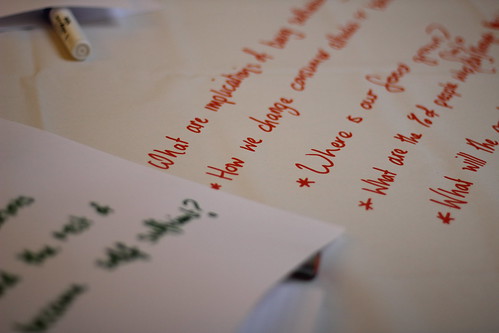For the last few months we’ve supported Birmingham City Council with their Fair Brum social inclusion process. We worked with groups and individuals to show them how they could take conversations they were having with residents of Birmingham about social inclusion over to online places, to try and engage with even more people.
We supported council staff, academics and others interested in using social media to share their stories, experiences and findings of social inclusion in Birmingham. We provided them with the skills that meant they were able to contribute to, or comment on, the process via the FairBrum blog – or on their own sites – and tweet via their own accounts using the #fairbrum tag. We also helped create content and conversation by social reporting from some of their events.
As of 4th September 2012, we found the #fairbrum tag on Twitter has been used 1,600 times and appeared 1,591,590 times. That’s the gross number of times the #fairbrum tag has appeared in Twitter users’ timelines since the start of the process. (Yes, it’s an enormous number – we know not that many pairs of eyes have clocked it!)
Those numbers continued to rise. When we looked at the figures this morning the tag had been used a total of 2,479 times and appeared 2,170,039 times.
All this interaction, along with the findings of offline interactions, has been looked at to see what Birmingham’s needs are. As a result, a green paper was produced with recommendations on how we can work together across the city to address social inclusion.
Recommendations are split into seven groups:
- Support families and children out of poverty
- Embrace super-diversity
- Protect the most vulnerable
- Connect people and place
- Create a city that values young people
- Empower people to shape their neighbourhood
- Address safety isolation and loneliness
They are all available to view, discuss and comment on, online at fairbrum.podnosh.com.
The consultation has been running for a while now. This weekend is the last chance for you to have your say, as the consultation closes on Monday, 5th November.
Follow the links above to view the groups of recommendations and click through to individual posts to add your thoughts. You can also let them know if you work for an organisation already doing what’s being recommended and add yourself to the map.


